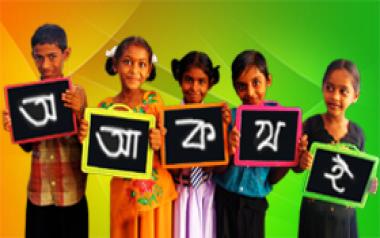Click Here >> Implementation of the section 12(1) C of the Right to Education Act 2009
All vernacular medium unaided and non-minority Private schools of Assam are instructed to register themselves in this dedicated portal by clicking on the link for effective implementation of the section 12(1) C of the Right to Education Act 2009.
Students belonging to weaker sections and disadvantaged groups as specified in the OM No PMA 73/2021/47 dated 2nd September 2021, who intends to get admitted in such schools under Section 12(1)c of the RTE Act as per neighbourhood norms mentioned in the said OM, shall register and apply through this portal.
Overview
The role of Universal Elementary Education (UEE) for strengthening the social fabric of democracy through provision of equal opportunities to all has been accepted since the inception of our Republic.With the formulation of NPE, India initiated a wide range of programmes for achieving the goal of UEE through several schematic and programme interventions.
The Right to Free & Compulsory Education Act, 2009 provides a justiciable legal framework that entitles all children between the ages of 6-14 years free and compulsory admission,attendance and completion of elementary education.It provides for children's right to an education of equitable quality, based on principles of equity and non-discrimination.Most importantly,it provides for children's right to an education that is free from fear,stress and anxiety.
The Sarva Shiksha Abhiyan (SSA) is being implemented as India's main programme for universalizing elementary education. Its overall goals include universal access and retention, bridging of gender and social category gaps in education and enhancement of learning levels of children. SSA provides for a variety of interventions, including inter alia, opening and construction of new schools, additional teachers, regular teacher in-service training, academic resource support to ensure free textbooks, uniforms and free support for improving learning outcomes.
Source:mhrd.gov.in
Right to Free and Compulsory Education Act, 2009. (Extracts)
- Every child of the age of six to fourteen years shall have the right to free and compulsory education.
- Where a child above six years of age has not been admitted in any school or though admitted, could not complete his or her elementary education, then, he or she shall be admitted in a class appropriate to his or her age.
- No school or person shall, while admitting a child, collect any capitation fee and subject the child or his or her parents or guardian to any screening procedure.
- No child shall be denied admission in a school for lack of age proof.
- The appropriate Government shall ensure that the child belonging to different linguistic group, religion, caste, sex, weaker section and the child belonging to disadvantaged group are not discriminated against and prevented from pursuing and completing elementary education on any grounds;
- No child admitted in a school shall be held back in any class or expelled from school till the completion of elementary education.
- No child in the age group 6-14 years shall be subjected to physical punishment or mental harassment.
- Teachers shall maintain regularity and punctuality in attending school.
- Out of school children will be identified and motivated to enroll for special training to be provided to them for aquiring the required competencies. Children from migratory groups shall also be provided with education.
- No teacher shall engage himself or herself in private tuition or private teaching activity.
- Children with special needs shall have the right to pursue free and compulsory elementary education in accordance with the provisions of Chapter V of the said Act.
- Minimum number of working days/instructional hours in an academic year are (i) two hundred working days and 400 hours for first class to fifth class (ii) two hundred and twenty working days and 1000 hours for sixth class to eighth class.
- Minimum number of working hours per week for the teacher is forty-five teaching including preparation hours. The preparation hours will be utilized for lesson planning, preparation of teaching-learning materials, assessment of classwork and homework, remedial teaching for slow learners, designing of school development plan and meeting the parents of irregular students.
Downloads
| Title | Size | Detail |
|---|
| OM No PMA 73/2021/47 dated 2nd September 2021 | 1.74 MB |  |
| Reservation Notifications | 810.47 KB |  |
| Capitation Fees | 105.27 KB |  |
| Engagement of Teachers in Non-educational Purposes | 472.38 KB |  |
| Final State RTE Rules for 2011, Assam | 227.97 KB |  |
| Local Authority | 497.43 KB |  |
| Office Memorandum Academic Year | 249.89 KB |  |
| Objection to Physical and Mental Harassment | 259.2 KB |  |
| Prohibition of Private Tuition | 236.8 KB |  |
| RTE Amendment 2015 | 140.5 KB |  |
| RTE Amendment 2017 | 1.1 MB |  |
| RTE Rules Assam 2011 | 18.81 MB |  |
| State Academic Authority | 422.23 KB |  |
